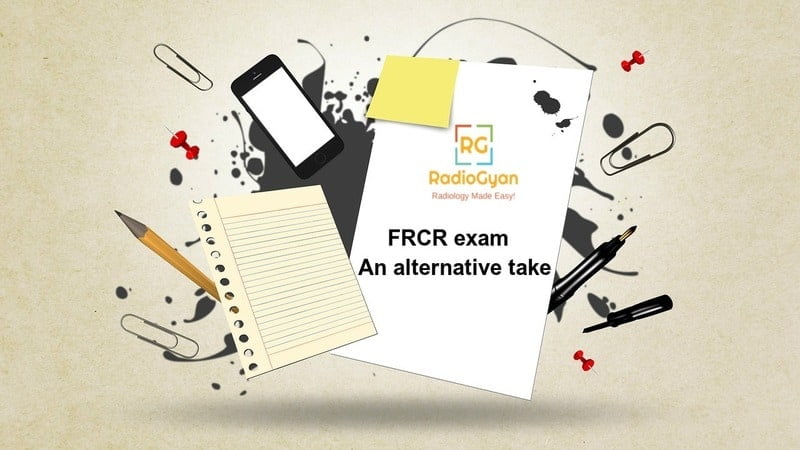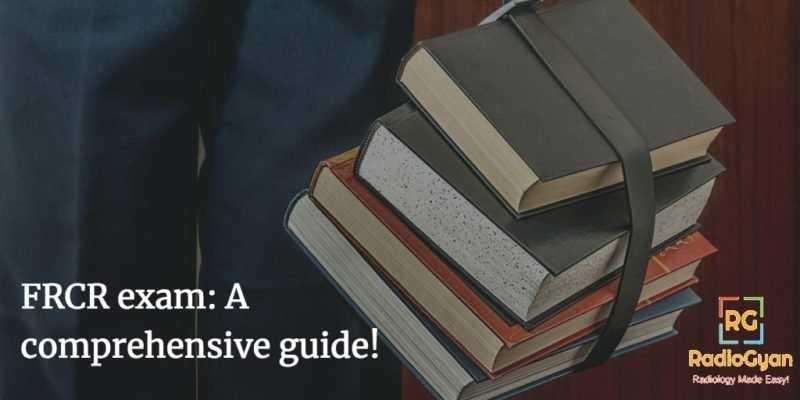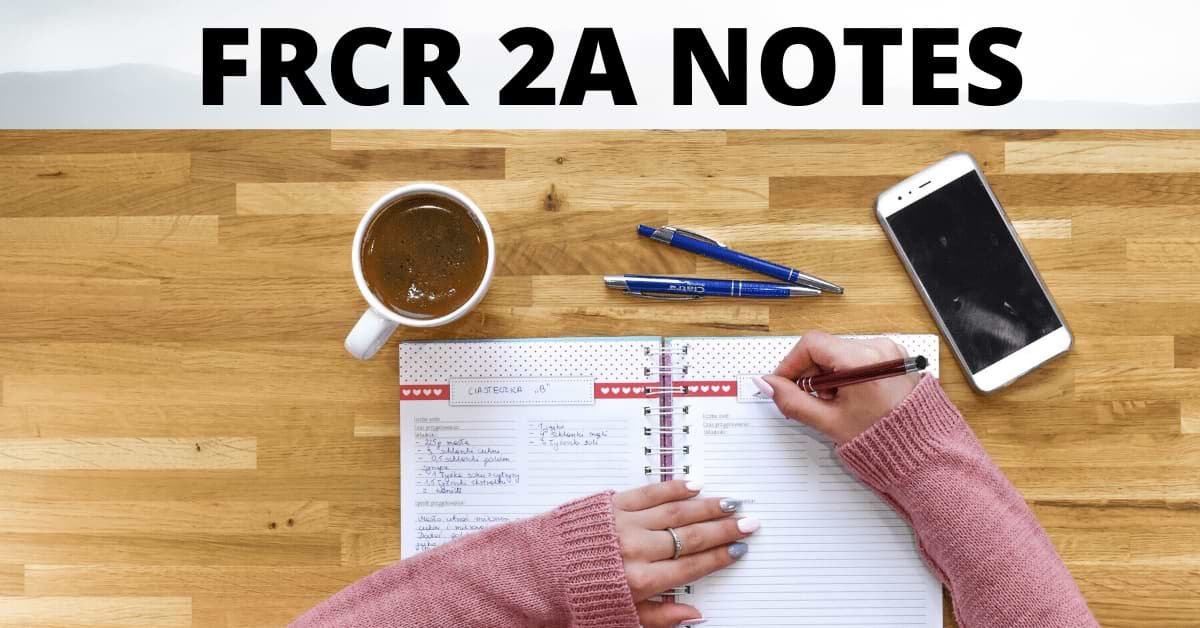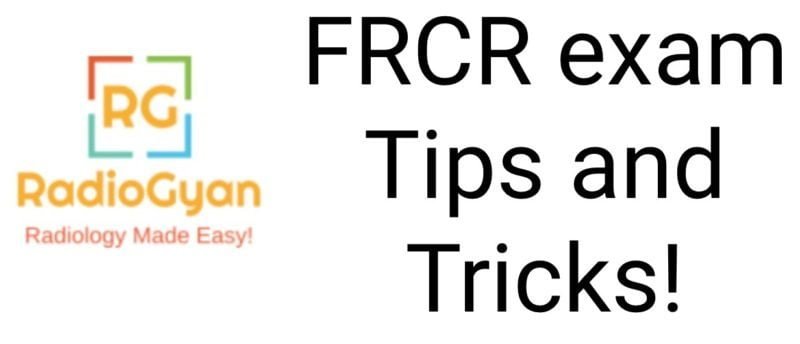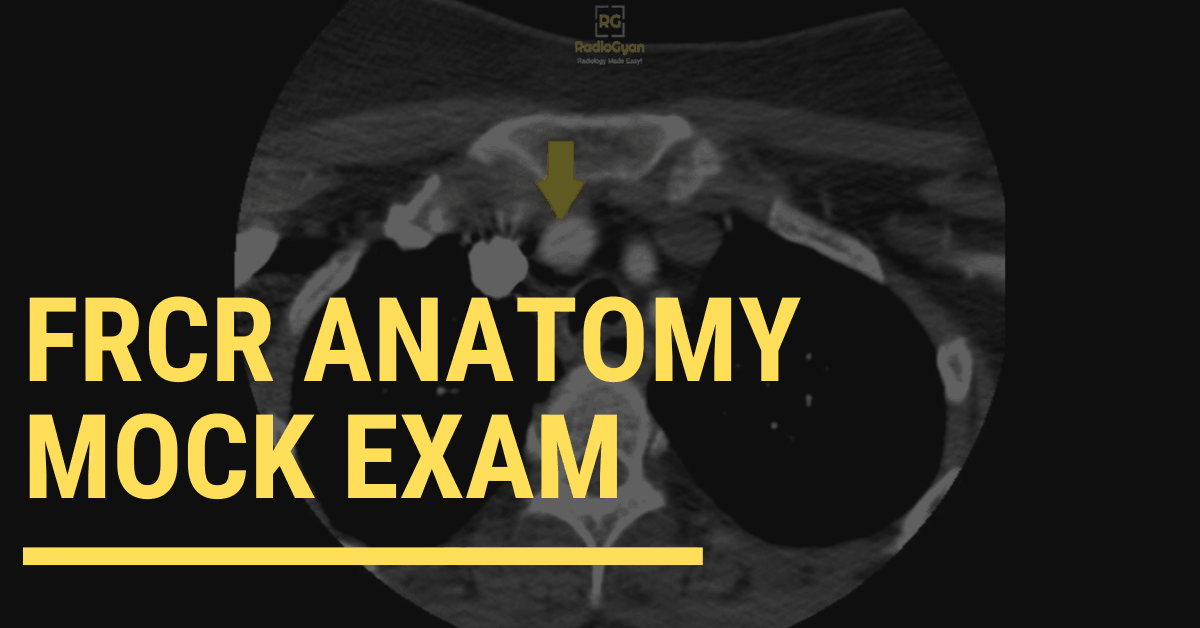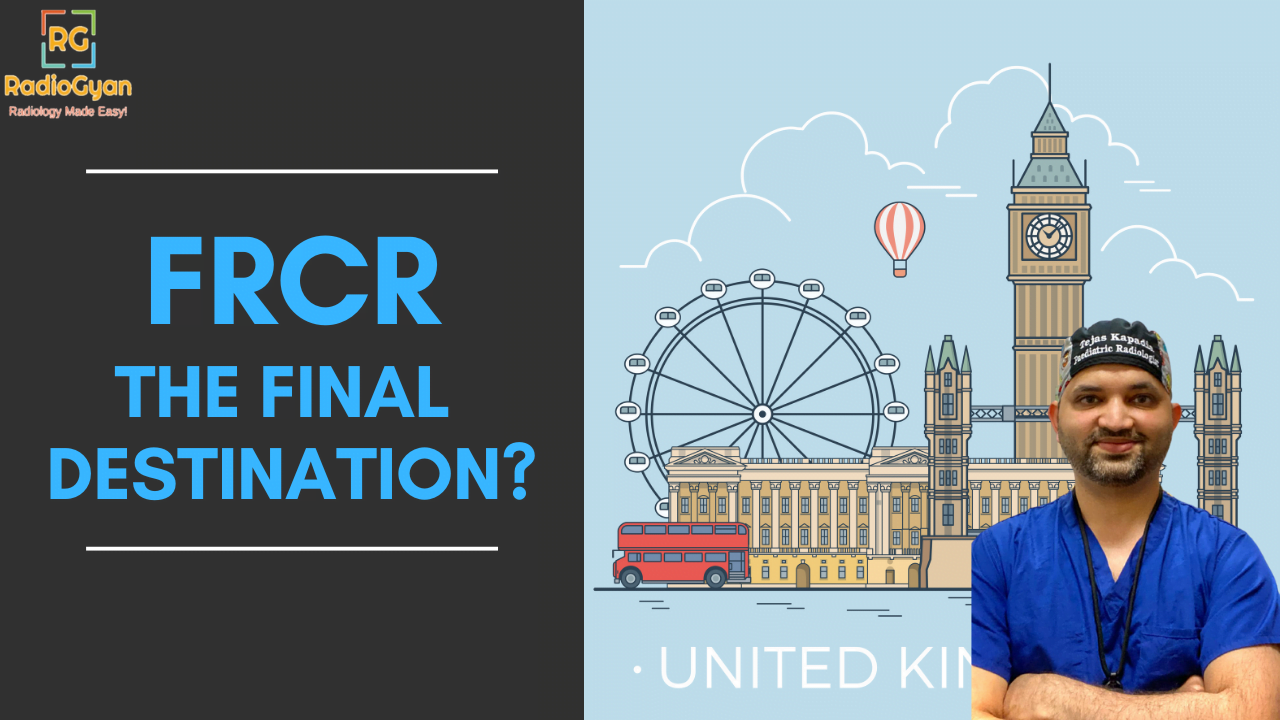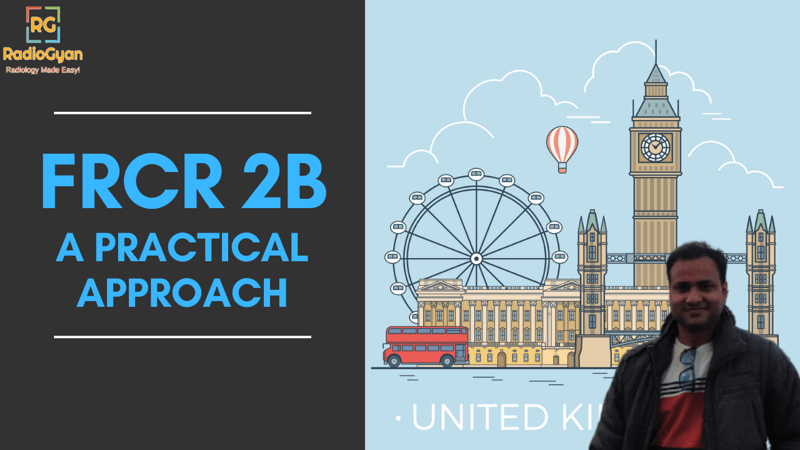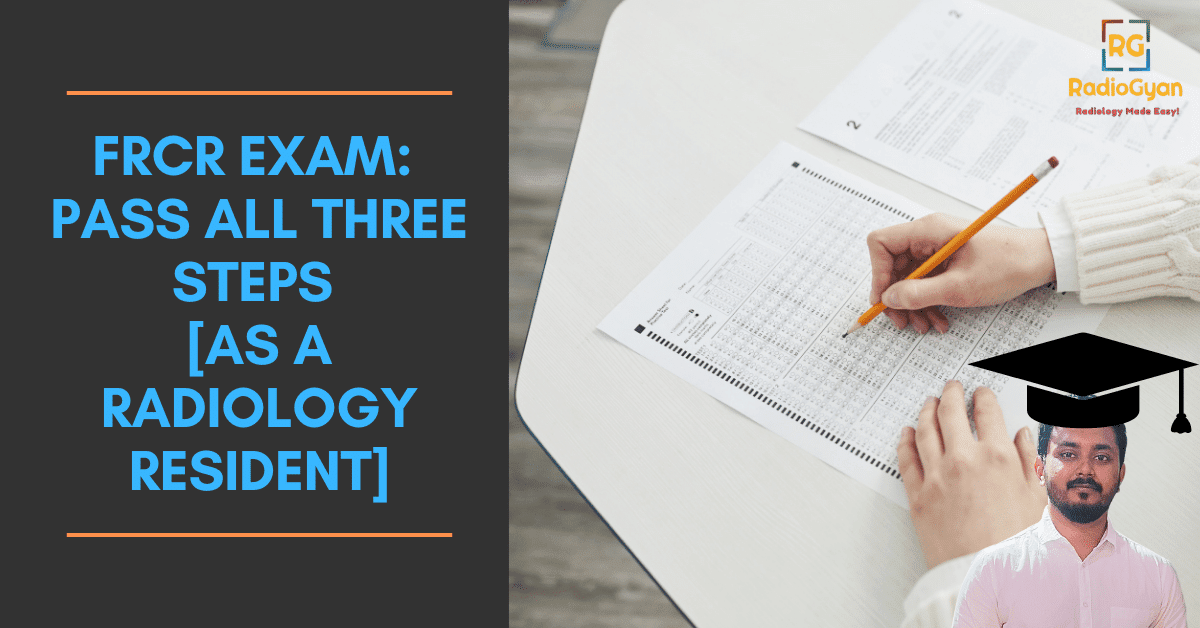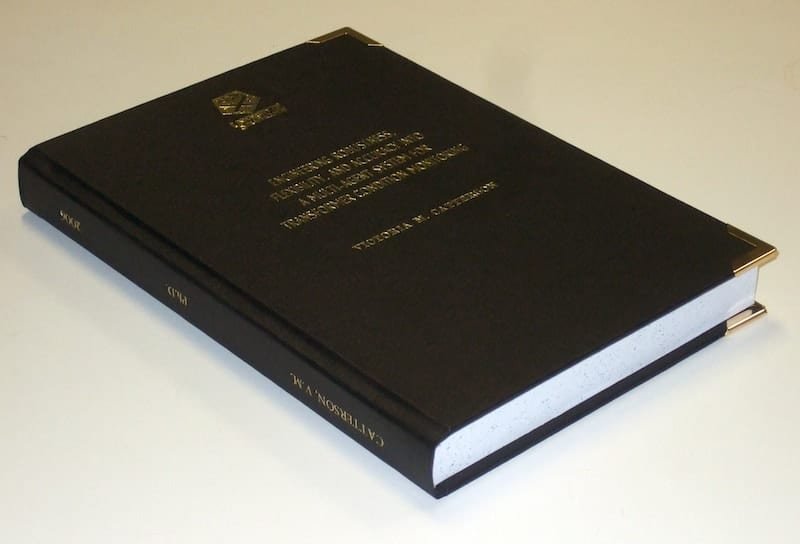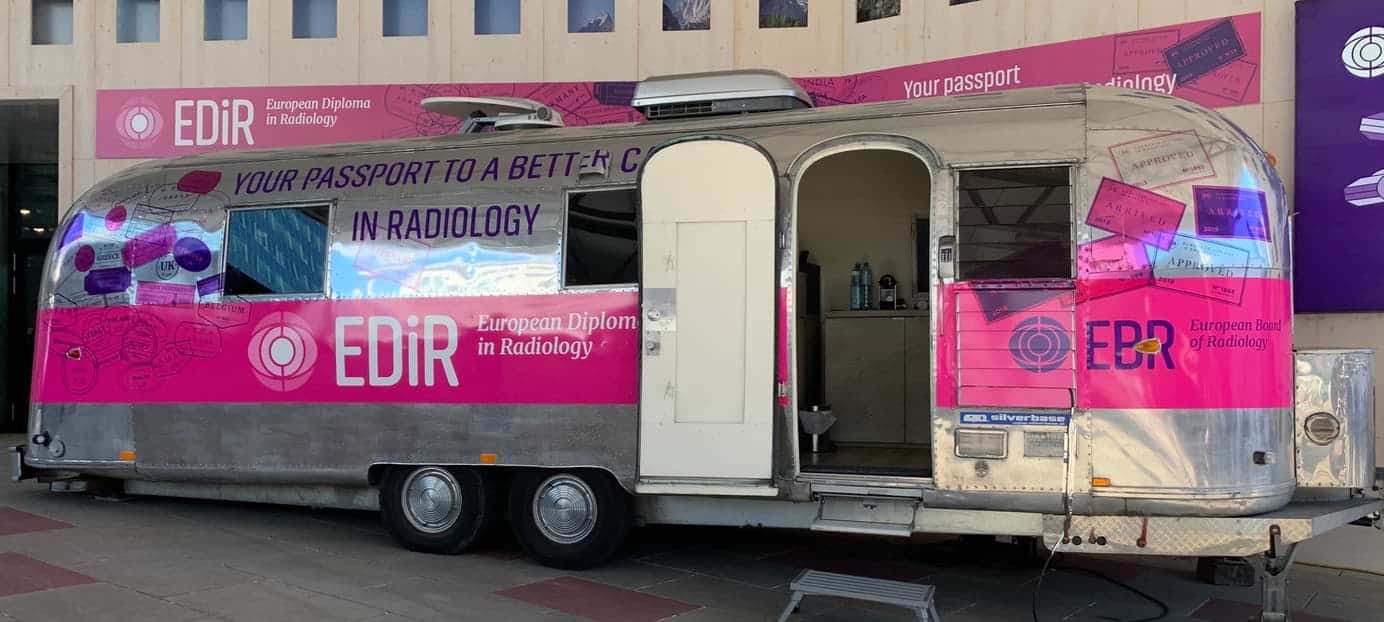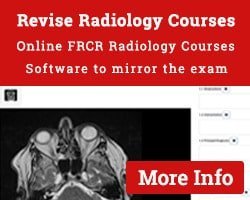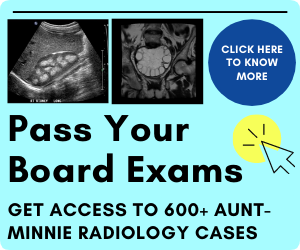We already have published a couple of articles on preparation for the FRCR exam including a comprehensive guide. In this guest post, Dr. Pooja Hegde would like to share her FRCR exam preparation strategy! It is a very interesting take on the exam, definitely something that no one would have told you before! I thank her for this post and if you too would like to share your experience do contact me or drop a message in our telegram group!
There are plenty of tips and advice available now for those preparing for FRCR. Everyone knows what books to read, what websites to access and so on. I’m sure everyone will think- Did those who pass the exam really do all this? It is easy to be overwhelmed by all the information. What if someone simplified the exam preparation? This post is intended to make everyone who is reading this to have an enjoyable final FRCR exam preparation.
This is mainly intended for overseas candidates. I write this from an Indian perspective and from someone who has given two radiology exams in India already.
Understand the exam. The exam is quite different than the radiology exams which you would have already taken.
Go through the RCR website, the examiner’s report, the demonstration site, the FAQ’s and every other information the website gives you.
Everyone knows the three components – Rapid reporting, Reporting / Long cases, and Viva. this can be grouped into two: rapids and viva-longs (they are basically the same thing, you type the answers in one, you tell it out in the other)
Have you heard everyone say they did 150 packets from XYZ website/books? Same goes for Viva. I presented approximately 600 cases during my preparation. Now let’s do the math. You start preparing about 2-3 months in advance. You do 2 sets of rapids per day and present 10 cases per day (preferably present with others taking the exam / those who have already taken it / even willing consultants or other seniors who will sit through bad presentations – don’t expect the presentations to be good in the beginning). So that makes it 120-180 sets of rapids and 600-900 cases if you do it consistently every single day. It would only take you about 2.5 hours each day.
Obviously, you will end up doing more as the exam approaches.
Now look at the scoring system: you know it ranges from 4 to 8. Let’s leave out the extremes. 4 for almost all the cases is very unlikely even if you give the exam today. 8 for almost all the cases is even more unlikely even if you prepare for many years. So the game is between 5/6/7. Aim for 6 and 7.
At least half the cases will be standard exam cases – if you have gone through 600 cases – you will know the types of cases that will come. Prepare for those and aim for at least 7 in the score.
9. If you don’t know the diagnosis, have a systematic approach to each of the investigations you may encounter – have an approach for chest radiographs, hands, and feet, joints, abdomen etc. Find an abnormality, and try to link with the clinical history. If you come to a sensible conclusion about what it could be – inflammatory /infective/neoplastic etc and give appropriate further radiological and non-radiological investigations, you will still pass the case with at least a 6.
Learn to describe everything you see even if you don’t know what it is. I have also been guilty of doing that, not saying about something because I didn’t know what it is. If you don’t say it, the examiner will not know if you have even seen it or not.
I started preparing for long cases only after I had the viva presentations improved up to a mark – because it enabled me to think faster, without wasting time irrespective of knowing the diagnosis and approach things in a systematic manner. I feel it is the same thought process, and if your typing speed is good enough, then you could do more viva than longs (it will be faster) – as long as you are 100% sure that you will complete all the 6 cases within 75 minutes. Enough emphasis has been laid on this fact by all the FRCR training courses.
It is important is to identify the pattern of mistakes that you are making. I made a lot of mistakes in facial fractures, intracranial herniations on CT/MR (head and neck/neuroradiology is not my cup of tea) – it is important to identify them and correct them as you prepare.
I doubt there is any use of reading textbooks/articles for this exam unless it is an area in which you are frequently erring.
FRCR exam preparation: HOW I DID IT:
- Started with these before actual preparation: Accident and Emergency Radiology: A Survival Guide and Final Frcr Part B Viva 100 Cases And Revision Notes
- Follow up with any viva/ long case book, Radiopedia, headneckbrainspine cases, frcrtutorials cases – present cases from anywhere, doesn’t matter. The important thing is to actively present and not just passively read through the answers.
- Rapids from FRCRtutorials, Revise radiology/Southwest FRCR, FRCR academy, and Radiopedia rapid sets. I felt FRCR academy closely mimicked the actual exam in January 2019.
FRCR exam preparation: ABOUT PRACTIQUE:
Advantages:
- You don’t have to worry about your handwriting!!!
- You can type in any order. In the last of my long cases I only had 7 minutes, I started typing from interpretation, diagnosis, and management and then typed the observations due to lack of time
- Do not get stuck with one section, especially observations.
- You can add /delete/edit the statements as long as time permits.
Disadvantages:
- There is no spell check – although they say you will not be penalized for minor incorrect spelling, you need to be careful that the meaning of the report is conveyed correctly. If you type there is ‘n’ pneumoperitoneum instead of ‘no’- I am not sure if they will consider that as the meaning isn’t clear.
- It is more difficult to count the number of abnormals in rapids in my opinion, as compared to the written format. I wouldn’t advise relying on this entirely.
FRCR exam preparation FINAL WORDS:
This exam is not a test of your knowledge, it is a test of your skill, how you handle the cases, are you a safe radiologist, how you communicate your findings to the clinicians.
- You do not need to say the exact name of the neoplasm, but you need to be able to say whether it is a tumor or not, and if it a tough case, how will you confirm it.
- The examiners are probably the nicest people you will ever meet in any exam according to me.
- They are expected to test you on a range of topics, in at least 5 out of 6 of the 2A specialties, on a wide range of difficulties (at the beginning of my preparation I didn’t diagnose acute appendicitis, because I didn’t think it was an exam case).
- The exam is intended to mimic routine work.
- Think of everyday simple things first. It is practically impossible for them to ask you only the things you do not know.
- Rapids are supposed to mimic the routine Accident and emergency pile of radiographs. There are no shortcuts. The more you do, the more you are aware of certain subtle types of fractures especially in pediatric radiographs and in severely osteopenic bones. I doubt anyone will pick up a subtle toddler’s fracture in the exam if they haven’t seen it before.
More FRCR related sources at RadioGyan.com
Check out other radiology resources at RadioGyan!

